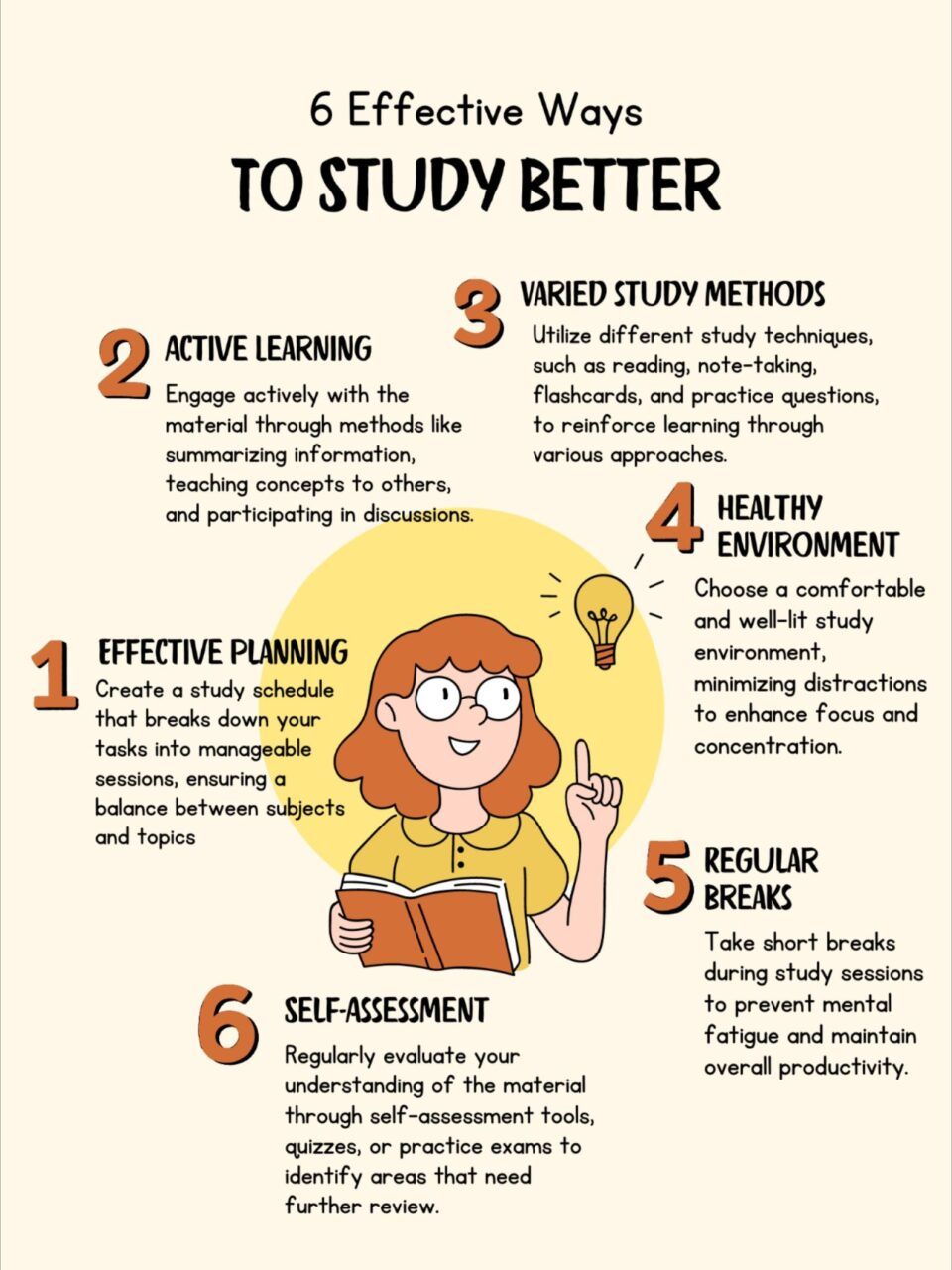Shop At Haya: Your Ultimate Shopping Guide
Discover the best shopping tips, trends, and deals for a smarter buying experience.
Cramming is So Last Year: Stress-Free Study Hacks You Haven't Tried
Unleash your potential with unique, stress-free study hacks! Ditch cramming and discover smarter ways to ace your exams effortlessly.
5 Revolutionary Study Techniques to Replace Cramming
Cramming is a common yet ineffective study method that leaves students feeling overwhelmed and unprepared. Instead of waiting until the last minute to absorb information, consider implementing revolutionary study techniques that foster long-term retention and understanding. Here are five techniques that can replace cramming and enhance your learning experience:
- Active Recall: Engage actively with the material by testing yourself on key concepts instead of passively reading. Create flashcards or practice quizzes to reinforce your memory.
- Spaced Repetition: Use spaced repetition systems (SRS) to review information at increasing intervals, which helps solidify your knowledge over time.
- Mind Mapping: Visualize connections between ideas through mind maps. This enhances comprehension and makes it easier to recall information during exams.
- Pomodoro Technique: Study in focused bursts using the Pomodoro technique. Work for 25 minutes, then take a 5-minute break to maintain concentration and improve productivity.
- Teaching Others: Explain what you've learned to someone else. Teaching challenges you to organize your thoughts and identify gaps in your understanding.

The Science Behind Spaced Repetition: Why It Works
Spaced repetition is a learning technique that capitalizes on the psychological spacing effect, which suggests that information is more easily retained when study sessions are spaced out over time rather than crammed in short bursts. This method operates on the principle that our brains are more likely to remember information when it is revisited at strategically timed intervals. As the science behind spaced repetition reveals, revisiting material during these optimal intervals enhances long-term memory consolidation by taking advantage of the way our brains naturally encode and retrieve information.
One of the key concepts that underlie the effectiveness of spaced repetition is the notion of forgetting curves. When we first learn something, the retention rate is high, but it begins to decline quickly if we do not review the material. By strategically timing our reviews, spaced repetition allows learners to challenge their memory just before they are likely to forget, thus reinforcing their knowledge effectively. Research indicates that when combined with active recall—testing oneself on the material—the science behind spaced repetition not only improves retention but also enhances overall learning efficiency.
How to Create a Study Schedule That Actually Sticks
Creating a study schedule that actually sticks requires careful planning and dedication. Start by assessing your current commitments; list out your daily activities, including classes, work, and leisure time. This will give you a clear picture of how much time you can realistically dedicate to studying. Once you have this information, prioritize your subjects based on urgency and difficulty. For instance, if you have an upcoming exam in math, allocate more study time to it. Setting specific goals for each study session can also enhance focus and productivity.
Next, choose the right tools to help you stay organized. Whether it’s a physical planner, a digital calendar, or a dedicated study app, find a method that suits your style. Break down your study sessions into manageable chunks, using the Pomodoro technique or similar methods, to keep your mind fresh. Remember to incorporate regular breaks and reward yourself for reaching your goals. Finally, review your schedule weekly to make adjustments as necessary, ensuring it continues to meet your needs and fits seamlessly into your routine.